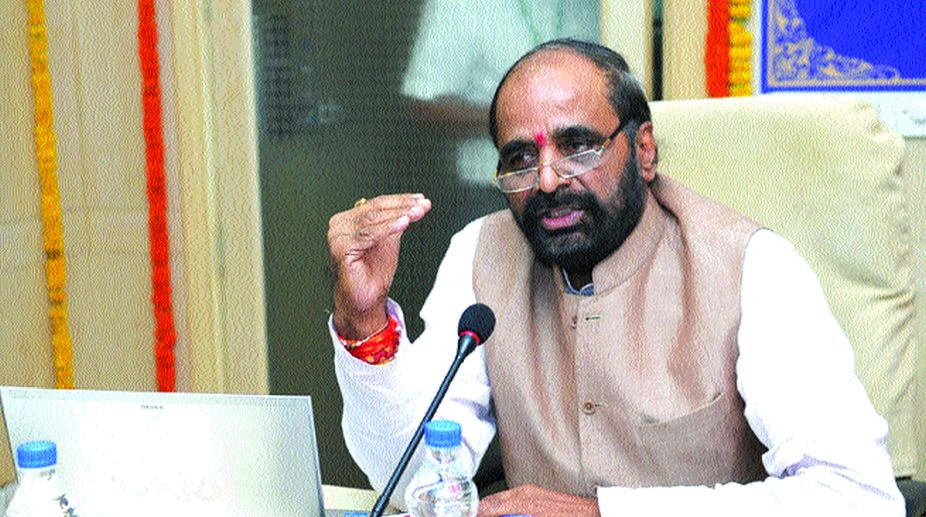Manipur cabinet asks Governor to summon Assembly on Aug 21
Amid the Opposition’s demand for imposition of President’s Rule in light of ethnic strife and violence that has ripped Manipur…
As many as 47,338 cases of crime against Scheduled Castes and Scheduled Tribes were registered across the country in 2016, the Lok Sabha was informed on Tuesday.

Hansraj Gangaram Ahir (PHOTO: SNS)
As many as 47,338 cases of crime against Scheduled Castes and Scheduled Tribes were registered across the country in 2016, the Lok Sabha was informed on Tuesday.
Union Minister of State for Home Hansraj Gangaram Ahir said as per the information provided by the National Crime Records Bureau (NCRB), a total of 40,774 cases were registered under the Scheduled Castes and Scheduled Tribes (Prevention of Atrocities) Act and other sections of law over alleged crimes against SCs and STs in the year 2016.
Of these, charge-sheets were filed in 78.3 per cent cases, and the conviction rate was 25.8 per cent, he said in reply to a written question.
Advertisement
As many as 6,564 cases were registered over alleged crimes against the Scheduled Tribes in 2016, in which charge-sheets were filed in 81.3 per cent cases where the conviction rate was 20.8 per cent, the minister said.
Ahir said in 2015, a total of 38,564 cases were registered for alleged crime against the SCs in which charge-sheets were filed in 73.8 per cent cases and the conviction rate was 27.2 per cent.
He said altogether 6,275 cases were registered in the country for alleged crime against STs in 2015 in which charge-sheets were filed in 74.3 per cent cases, and the conviction rate was 19.8 per cent.
The minister said Rule 3 (v) of the Scheduled Castes and the Scheduled Tribes (Prevention of Atrocities) Rules, 1995 specifies that with a view to prevent atrocities on members of Scheduled Castes and Scheduled Tribes, the state government, if deemed necessary, can provide arms licenses to the member of Scheduled Castes and Scheduled Tribes.
“Police’ and Public Order’ are State subjects under the Seventh Schedule to the Constitution of India. The responsibilities to maintain law and order, protection of life and property of the citizens rest primarily with the respective state governments. The state governments are competent to deal with such offences under the extant provisions of laws,” Ahir added.
Advertisement